Members of the Advisory Committee
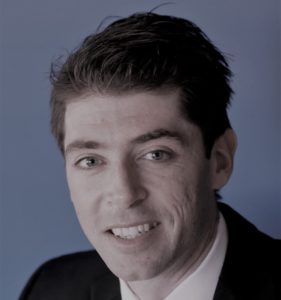
Ben Batros
Ben Batros is an international law practitioner focused on how law can best support climate action, including the intersection of climate change, human rights and accountability. He is a director at Strategy for Humanity, having previously worked for the Open Society Justice Initiative, as Appeals Counsel in the Office of the Prosecutor at the International Criminal Court; and on regional cooperation to combat transnational crime for the Australian Attorney-General’s Department.
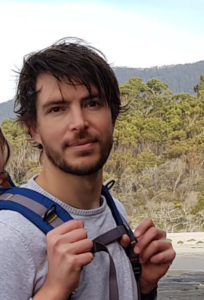
Lennart Bach
Dr. Bach is an experimental marine biogeochemist, discovering environmental impacts on marine pelagic ecosystems at global scales. From 2012-2019, he was a postdoctoral researcher at GEOMAR Helmholtz Centre for Ocean Research Kiel where he studied the effects of ocean acidification and other environmental drivers on plankton communities and the biogeochemical fluxes plankton controls. In 2020 he became appointed with an ongoing research position for phytoplankton physiology and ecology at the Institute for Marine and Antarctic Studies at the University of Tasmania and received a Future Fellowship Award by the Australian Research Council to study the efficacy and environmental side-effects of Ocean Alkalinity Enhancement.
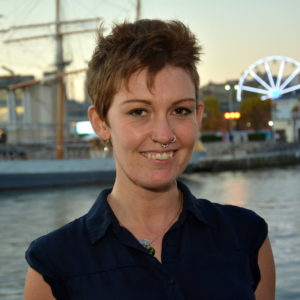
Emily Cox
Emily is a researcher in environmental policy and social psychology, in the Understanding Risk Group at Cardiff University. Her work focuses on the social science of technology and innovation, with particular expertise technologies to remove CO2 from the atmosphere. Her work includes public perceptions, policy, governance and ethics. For the past three years she has researched public perceptions of Enhanced Weathering, a technique to remove CO2 by sprinkling crushed rocks onto soils, working to embed principles of public engagement and responsible innovation in technology development. She also works on energy system resilience and the psychology of disruptive events, and works to incorporate ideas of social resilience into low-carbon infrastructure development. Emily has a background in the NGO sector, and remains a committed environmental campaigner.
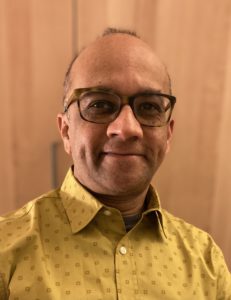
Mahmud Farooque
Mahmud Farooque is the Associate Director of the Consortium for Science, Policy and Outcomes (CSPO) and a Clinical Associate Professor in the School for the Future of Innovation in Society at Arizona State University. Mahmud’s work at the ASU Washington Center focuses on making science more democratic and useful. The useful component engages boundary practitioners at the science and policy interface for reconciling the supply of and demand for scientific information. The democratic component leverages a network of academics, educators and analysts for participatory technology assessment (pTA). Mahmud is the principal coordinator of Expert and Citizen Assessment of Science and Technology (ECAST), which brings together academic research centers, informal science education centers, citizen science programs and non-partisan policy think tanks to engage citizens on decision-making related to science and technology policy. His pTA project portfolio includes deliberations on topics of biodiversity, space, climate and energy, community resilience, gene drives, driverless cars, solar geoengineering, and human gene editing.
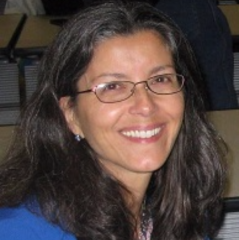
Elisabeth Graffy
Elisabeth Graffy is Professor of Practice in the School for the Future of Innovation in Society and Senior Sustainability Scientist in the Global Institute of Sustainability and Innovation at Arizona State University. Her research, teaching and public engagement focus on sustainability transitions, disruptions and innovations involving food, energy, water, climate change, and strategic organizational leadership. She designed and directs the SEEK (Sustainable Energy, Equity and Knowledge-Sharing) Project which leverages multi-sectoral partnerships to generate social innovation and stewardship-based climate solutions. In addition to overseeing the capital budget for homeless housing in New York City, directing a refugee program in Somalia, and mediating farm credit disputes in the Midwest, Dr. Graffy held leadership roles in the federal government. She was appointed by the Acting Secretary of the Interior to lead the department’s involvement in a White House policy initiative on environmental decision-making with the Council on Environmental Quality and served as National Policy Advisor for the National Water Quality Assessment Program at the US Geological Survey. She advised Congress on agroenvironmental issues at the US Congress’s Office of Technology Assessment and developed strategies to support microenterprises as a MUCIA fellow at the US Agency for International Development. She has received professional service and academic awards for her work at the science-policy interface, including the Dimock award for best article and Brownlow award for best article by a practitioner in Public Administration Review, the only such dual award in journal history. She holds degrees in Politics (Princeton University), Agricultural Economics (University of Wisconsin-Madison), and Environment & Resources/Public Policy (University of Wisconsin-Madison).
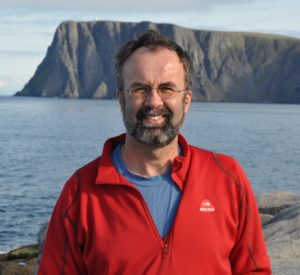
Jasper Griffioen
Prof. Dr. Jasper Griffioen is specialised in environmental geochemistry and hydrogeology within the framework of sustainable management of soil and water resources. He has been studying the potential of nature-based techniques for environmental management of water and land: 1. environmental geochemical risks at the Sand Motor, a nature-driven nourishment technique of coastal systems, 2. biogeochemical processes when building islands with soft mud sediments and their implication for strength development and ecological evolution, 3. physical boundary conditions for dynamic polder management to reach sustainable livelihoods, applied to southwestern Bangladesh, and 4. transforming harbour sediments from waste product into resource by adding olivine. His expertise is frequently used for initial evaluations and second-opinions for critical conditions as well as policy support. He applied his expertise internationally in Kenya, Tanzania, Slovakia, Indonesia, China, Lebanon, Nepal and Uganda, and has been involved in PhD studies in Bangladesh, Italy, Iran, Brazil and Nepal.

Mathilde Hagens
Mathilde Hagens is a biogeochemist focusing on carbon and nutrient cycling in natural environments. She is interested in the functioning of both the terrestrial and oceanic carbon sinks in relation to climate change mitigation, with a particular interest in enhanced silicate weathering. She currently investigates this topic at the Soil Chemistry and Chemical Soil Quality chair group at Wageningen University & Research, where she also teaches in the Master Climate Studies. In her Ph.D. and postdoc projects Mathilde worked on the impact of biogeochemical processes on the carbonate system in the marine realm, for which she combined field data with numerical modelling.
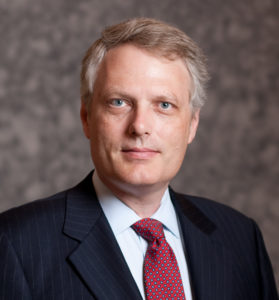
Tracy Hester
Professor Hester teaches environmental law and emerging technology courses at the University of Houston Law Center. His research focuses on the innovative application of environmental laws to emerging technologies and risks, such as climate engineering, nanotechnologies, genetic modification, wind and other renewable power projects, and on novel compliance and liability issues. Prior to joining the University of Houston Law Center, Prof. Hester served as a partner in Bracewell LLP for sixteen years and led the Houston office’s environmental group. He has previously taught classes on Environmental Law, Natural Resource Damages Liability, Climate Change Liability and Litigation, Emerging Technologies and Environmental Law, Advanced Hazardous Waste Law, and Practice of Environmental Law. He also teaches the first year course on Statutory Interpretation and Regulatory Practice.

Matthias Honegger
Matthias Honegger is a senior climate policy consultant and researcher with Perspectives Climate Research, and PhD candidate at Utrecht University. He has worked on sectoral mitigation policies, national mitigation targets, UNFCCC negotiations, and policy advancements for comprehensively addressing carbon dioxide removal. He is furthermore examining the many governance challenges associated with solar radiation modification. A particular focus of his research is on the role of paradigms and narratives in international policy processes in shaping emerging governance objects. He is author and co-author on several articles, commentaries and reports on issues regarding the design of appropriate policy for carbon dioxide removal and solar radiation management and has led the first broad qualitative assessment of potential implications that deployment of such technologies could have on the pursuit of the entirety of the Sustainable Development Goals. His work demonstrates a strong commitment to constructive collaborative efforts at the science-policy interface for future-proofing climate change governance.
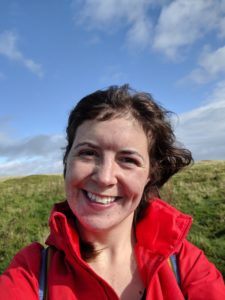
Elspeth Spence
Elspeth Spence has a background in environmental psychology and is currently a research associate at Cardiff University as part of the Understanding Risk Group. Her research assesses public perceptions of environmental risks, particularly around emerging risks related to climate change. Her PhD work explored how the public understood the unfamiliar risk issue of ocean acidification and she maintains an interest in perceptions of marine climate change impacts. Elspeth currently works as part of the Leverhulme Centre for Climate Change Mitigation, which is examining the feasibility of enhanced rock weathering, including how the public would respond to this carbon dioxide removal proposal. She has researched perceptions of those living in the US, UK and Australia on enhanced weathering and carbon dioxide removal more generally, and is currently collaborating with colleagues in Malaysian Borneo to explore public attitudes in the Global South.
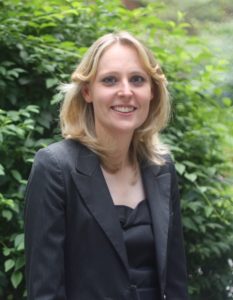
Romany Webb
Romany Webb is an Associate Research Scholar at Columbia Law School and Senior Fellow at the Sabin Center for Climate Change Law. Romany’s research focuses on two primary areas: (1) energy and (2) negative emissions technologies. Romany’s energy-related research explores how legal and policy tools can be used to minimize the climate impacts of energy development as well the impacts of climate change on energy infrastructure. Romany also researches legal issues associated with the development and deployment of negative emissions technologies on land and in the oceans. She serves on the National Academy of Sciences, Engineering, and Medicine Committee on Ocean Carbon Dioxide Removal and Sequestration. She is also a vice chair of the Climate Change, Sustainable Development, and Ecosystems Committee of the American Bar Association’s Section of Environment, Energy, and Resources.
